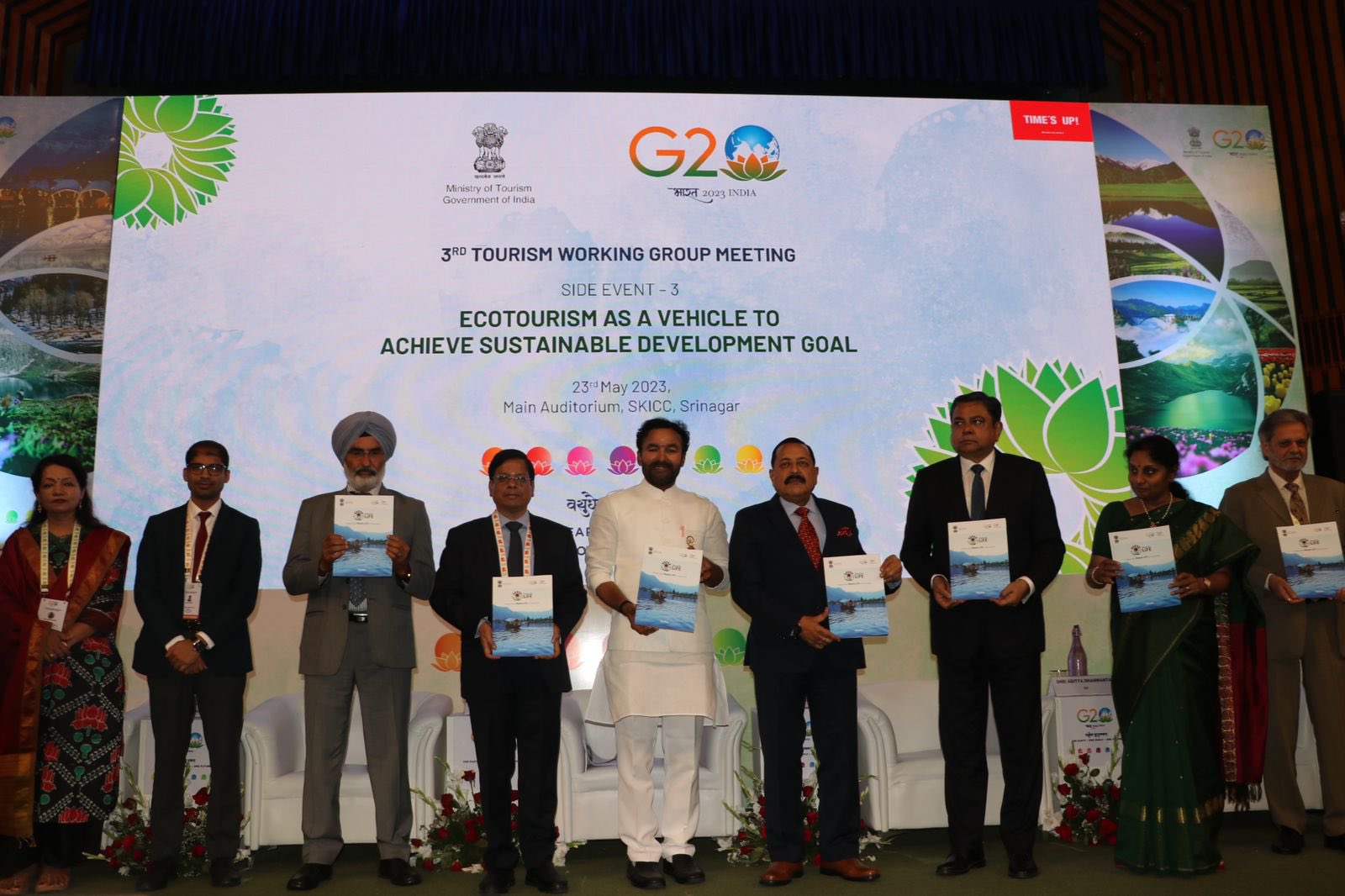The G20 summit, held under India’s presidency and set against the backdrop of Kashmir, represents a pivotal milestone in the global battle against climate change and the advancement of sustainable development.
By Aubaid Ahmad Akhoon
The Group of Twenty (G20) stands as an extraordinary global forum, encompassing the most influential economies on the planet, collectively representing an astounding 85% of global GDP and constituting two-thirds of the world’s population. Since its establishment in 1999, the G20 has assumed a pivotal and indispensable role in championing international financial stability and fostering robust economic growth on a global scale. Its distinguished membership comprises 19 countries, alongside the inclusion of the esteemed European Union. G20’s Sustainable and Collective Impact
Each year, the G20 organizes high-profile summits that convene the esteemed leaders of its member nations. These summits serve as crucial platforms for engaging in comprehensive discussions and coordinating policies pertaining to a broad spectrum of paramount global economic and financial matters. Recent iterations of the G20 summit have tackled pressing and intricate topics with unwavering commitment, delving into areas such as rigorous financial regulation, the intricate realm of international trade, the ever-evolving spheres of energy and climate change, the vital aspects of development, as well as the intricate dynamics surrounding labor and employment.

In addition to these annual summits, the G20 operates and thrives through a multitude of specialized working groups and committees, each dedicated to addressing specific and nuanced issues of great significance. Among the notable examples are the esteemed Global Financial Stability Board (FSB), the venerable International Monetary Fund (IMF), and the revered World Bank, which diligently toil to ensure the stability, resilience, and progress of the global financial landscape.
In essence, the G20 assumes an absolutely vital and indomitable role in shaping the world’s economic and financial agenda, as well as in fostering robust international cooperation aimed at effectively addressing and surmounting the multifaceted challenges that confront humanity today. With unwavering dedication, the G20 endeavors to propel the world towards a future marked by progress, prosperity, and collective well-being.
India’s presidency of the G20 summit assumes exceptional significance as a pivotal stride towards addressing the existential peril of climate change and discovering sustainable solutions. With the motto “One Earth, One Family, One Future,” India underscores the imperativeness of global cooperation and solidarity in confronting this pressing issue.
Prime Minister Narendra Modi aptly captured the essence of this momentous endeavor, proclaiming, “The future belongs to those who build it.” Such a sentiment resonates deeply as world leaders gather to deliberate on the critical challenges before us.
Antonio Guterres, the Secretary-General of the United Nations, aptly recognizes the gravity of the situation, asserting, “Climate change is the defining challenge of our time and requires a global response.” The urgency to address this issue is paramount, and the G20 summit provides a platform for collective action.
India’s steadfast commitment to a low-carbon development strategy and its remarkable strides towards renewable energy sources position the nation as a trailblazer in the transition to a sustainable future. As India’s energy demand is projected to double by 2040, the nation is proactively pursuing universal electrification, bolstering energy efficiency, and championing conservation efforts. Illustrating this unwavering dedication, India’s parliament has recently passed the Energy Conservation (Amendment) Bill, 2022, which aims to enhance energy efficiency and curtail greenhouse gas emissions.
In addition to these domestic endeavors, India has been extending technical and financial assistance to other nations, particularly those in the Global South, to support their transition towards a low-carbon and sustainable trajectory. Notable initiatives, including the International Solar Alliance (ISA) and the Coalition for Disaster Resilient Infrastructure (CDRI), have been spearheaded by India, promoting the adoption of renewable energy and the construction of resilient infrastructure to combat climate-related challenges.
India’s presidency of the G20, with the prominent destination being Kashmir, presents a significant opportunity for the region to showcase its remarkable efforts and achievements in addressing climate change and fostering sustainable development. The hosting of the G20 summit in Kashmir holds the potential to stimulate the region’s economy, invigorate tourism, and spur overall development. It offers a compelling platform for Kashmir to accentuate its allure as a sustainable tourism hotspot and an attractive investment destination, while concurrently raising awareness about the environmental obstacles confronting the region.
As the world’s attention converges on the G20 summit in Kashmir, the global community eagerly anticipates witnessing the transformative outcomes and collaborative endeavors that will emerge, uniting nations in their shared pursuit of a resilient and sustainable future.
Furthermore, the G20 summit presents a unique opportunity for global unity and collaboration in the pursuit of inclusive, meaningful, and sustainable solutions. By choosing to host the summit in the picturesque region of Kashmir, India aims to highlight the significance of preserving and safeguarding the natural beauty and resources abundant in the area.

Former Secretary-General of the United Nations, Ban Ki-moon, aptly articulated the essence of collective action, stating, “We cannot solve global challenges unless we solve them together.” This sentiment resonates strongly as world leaders convene at the G20 summit, recognizing the imperative of collaborative efforts to overcome the pressing challenges we face.
The G20 summit, held under India’s presidency and set against the backdrop of Kashmir, represents a pivotal milestone in the global battle against climate change and the advancement of sustainable development. India’s steadfast commitment to low-carbon development, its leadership in embracing renewable energy sources, and its initiatives to support other nations exemplify its unwavering dedication to finding practical and sustainable solutions. Now is the time for us to unite, working hand in hand, to construct a brighter and greener future for generations to come.

Leave a Reply